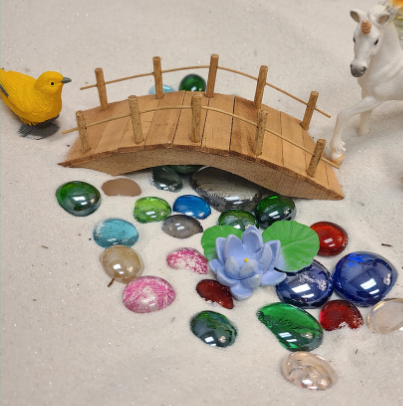- Bridging the Gap: Key Insights for Play Therapists About Occupational Therapy
November 29, 2024
9:30 am - 11:30 am
Play Cafés have traditionally been short in-person workshops for learning and networking and are one of the many BCPTA member perks. This year, we will hold Play Cafés virtually to increase access for our members outside of the Lower Mainland. We hope that you can join us!
*This event is for learning enrichment and connection – No Continuing education credits are being provided.*
*This event will NOT be recorded*
Bridging the Gap: Key Insights for Play Therapists About Occupational Therapy
A Virtual Play Café Event!
Friday, November 29th
9:30am – 11:30am
Please register by November 22nd
Therapists who use play therapy and occupational therapists often work with similar populations but their approaches, methods, and goals may vary. Understanding occupational therapy principles can help play therapists better collaborate and support their clients’ development. Occupational therapy aims to help children develop the skills they need for everyday activities or “occupations,” such as dressing, feeding, playing, and participating in school.
Both professions use play as a tool but with different objectives. For Occupational Therapists, play may be used to develop motor skills, coordination, or sensory integration. For clinicians who use play therapy, play may serve as a medium for emotional expression and problem-solving. Understanding this distinction helps play therapists appreciate how play can be therapeutic in diverse ways.

Here are the key points we will be exploring:
- The foundations of Occupational Therapy: What is pediatric Occupational Therapy and what do typical sessions look like?
- Building capacity: What different occupations do children have and how do Occupational Therapists support their functioning? We will also look at how challenges in these areas can impact regulation.
- Sensory integration: What is sensory processing and how it can impact regulation?
- Therapeutic use of play: How play-based occupational therapy practices can support self-help skills, fine motor skills, and sensory processing.
- Collaboration between disciplines: How Occupational Therapists and therapists can collaborate and align goals and strategies to best support and guide children’s progression toward their overall well-being.
- Integration into the Play Therapy room: A few strategies Play Therapists can use in their sessions.
Who May Benefit from this Play Café:
Anyone who may be interested in learning about how Occupational Therapists and therapists who use a play therapy approach can collaborate and align goals and strategies to best support and guide children’s progression toward their overall well-being. This may be students, child therapists, play therapists, family therapists, psychologists, social workers, school counsellors, and other mental health professionals working with children, adolescents, and families. No prior play therapy knowledge is necessary.
About the Presenter:
 Ayeesha Bhatara BSc, MScOT is a pediatric occupational therapist specializing in early intervention, with experience working with children from infancy through adolescence. She has supported children and youth with diverse diagnoses, including autism spectrum disorder, cerebral palsy, Down syndrome, spinal cord injuries, low muscle tone, and various genetic conditions. Ayeesha’s practice focuses on helping children develop essential self-help skills, feeding abilities, fine motor coordination, body awareness, and sensory processing and regulation.
Ayeesha Bhatara BSc, MScOT is a pediatric occupational therapist specializing in early intervention, with experience working with children from infancy through adolescence. She has supported children and youth with diverse diagnoses, including autism spectrum disorder, cerebral palsy, Down syndrome, spinal cord injuries, low muscle tone, and various genetic conditions. Ayeesha’s practice focuses on helping children develop essential self-help skills, feeding abilities, fine motor coordination, body awareness, and sensory processing and regulation.